Crowdfunding has turned into a lifeline for many Palestinians trapped in Rafah, providing the only means of covering the exorbitant cost of crossing the border. International social media users are swarming to lend a hand.
In Short
- Crowdfunding has become essential for palestinians in rafah, enabling them to cover the high costs of crossing borders.
- The gaza conflict and rafah’s situation have spurred international support for these fundraising efforts.
TFD – Explore how crowdfunding has emerged as a crucial lifeline for Palestinians in Rafah, offering hope amidst the challenges of crossing borders in the midst of the Gaza conflict.
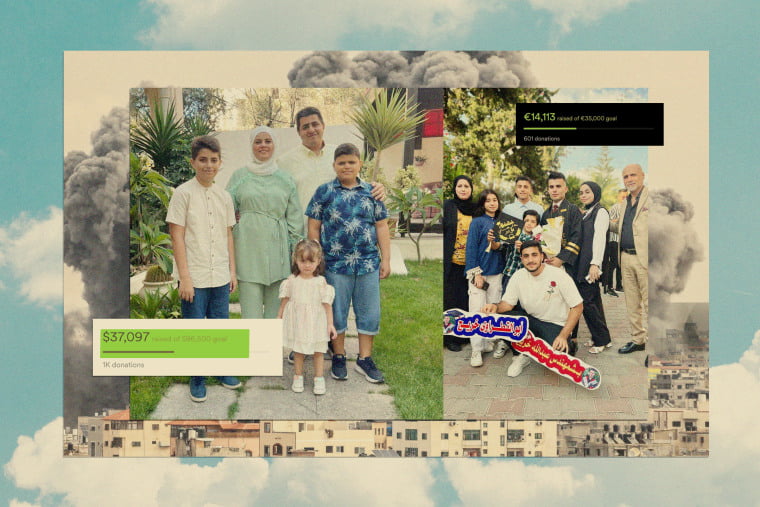
In January, while Anas Al Borno and his family were in a Rafah refugee camp, he was laying on a thin mattress when a relative texted him with some uncommonly good news. Al Borno and his family could enter Egypt for the first time since October 7.
Under new regulations, the primary travel operator that facilitates these crossings has let Palestinians without foreign passports to pass via the land border. There was a catch, though: Al Borno and his family had to pay at least $18,000 to leave, which was much more than they could afford.
“I didn’t have any money,” said Al Borno, 36, whose livelihood had been shattered after his small manufacturing business was bombed early in the war. “I had no options; how could I live? How could I eat? How could I travel, me and my family?”
A stranger 8,000 miles away provided him with a lifeline in the form of a Jewish graphic designer from California who started a crowdfunding effort, which ultimately generated the majority of the funds required for Al Borno’s wife and kids to cross the border one month later.
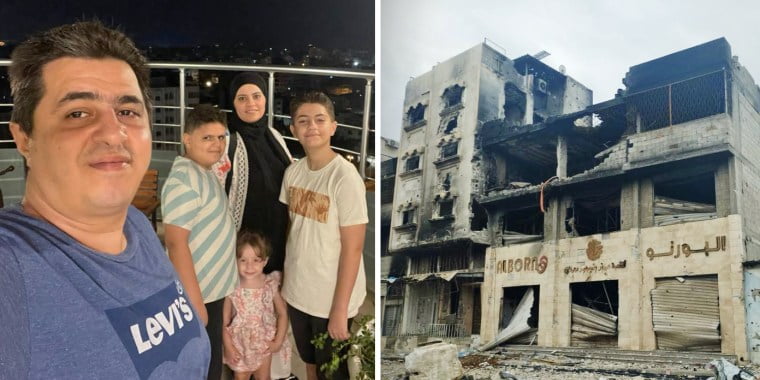
“To escape this war is my only hope in life,” declared Al Borno, who remained behind and carried on collecting money to enable himself and his family to leave. These days, he speaks with the hundreds of donors for a large portion of the day.
“I feel that they are my closest friends,” he said.
Many Gazans, like Al Borno, are in a desperate attempt to escape after more than six months of Israel’s attack on the Gaza Strip, which health officials in the area claim has killed over 34,000 Palestinians and destroyed the great majority of the Strip’s buildings. Numerous individuals have resorted to crowdfunding platforms as a means of raising funds to enter Egypt, which is frequently their only exit. They are assisted in overcoming financial obstacles by an increasing number of foreign acquaintances.
Since October 7, more than 12,000 active projects, mostly for evacuation, have been established on the most popular platform, GoFundMe, on behalf of Palestinians in Gaza. They have raised more than $75 million, a representative of the company said.
However, leaving Gaza is just from easy, even for the families that have benefited from crowdsourcing initiatives.
“Estimated danger”
The Rafah border, which opens into a military area of Egypt’s Sinai Desert, is the only land crossing out of the Gaza Strip that does not go to Israel. It is located on the southernmost tip of the Strip. It became the primary route for Gazans to travel outside of the enclave after Israel imposed a blockade on it in 2007. Crossings under Israeli control were either sealed off or significantly more difficult to navigate.
But getting into Egypt was never easy. Before the war, human rights groups documented bureaucratic hurdles like long delays for crucial visa paperwork and unexplained denials that left Palestinians waiting months or years for permits to cross. Sporadic border closures and mistreatment by border officials were a regular part of the experience.
The Arabic word for coordination, “tanseeq,” refers to the network of travel companies and black market middlemen that have traditionally served as expediters in this process. For a fee, they use connections with Egyptian authorities to speed up paperwork processes and get Palestinians’ names on the approved list of travelers used by border officials.
After Oct. 7, when Egypt severely restricted who might cross, their prices surged. Official pricing for coordinators is unknown, but according to over a dozen residents with firsthand knowledge of the procedure, pre-war rates ranged from $500 to $1,000 per individual. Many families who are fleeing the war have reported paying almost $7,000 a person since it started, which is more than twice the average yearly income of a family in Gaza.
As the conflict continued, Rafah’s population quadrupled and the number of Palestinians who were anxious to escape increased. Although the Israeli military has declared the crowded bordertown a “safe zone” since December, airstrikes have struck the area often in recent months.
To raise the funds to cross the border, many in Gaza turned to crowdfunding platforms like GoFundMe. Travel agencies, who were seen as the more reliable coordinators, only offered their services to Palestinians who had immediate family members who held passports from other countries until late January. That left the majority of Gazans with the black market as their only option. Stories of fleeing families scammed out of thousands circulated widely, 7 people told TFD News, leaving many hesitant to use the black market.
Travel agencies opened applications to all Palestinians in late January. Soon after, Israel announced it was planning a ground offensive on Rafah, prompting a rush of people like Al Borno to begin raising money to pay the soaring fees. But that was no easy task. Most travel agencies and middlemen require payment in U.S. dollars in cash. And fundraising platform rules often require a bank account from the U.S. or Europe to launch a campaign.
A bank account from one of the 19 supported nations—which exclude Egypt, Israel, and the Palestinian territories—is required by GoFundMe. When they were unable to start their own campaigns, many Palestinians posted about their experiences and sought assistance on social media platforms like Instagram and TikTok.
Their messages were received even though there was inconsistent internet availability across the region. Many were extensively disseminated, which led to an explosion of global online fundraising efforts.
People started funding campaigns on behalf of families they had never known who were stuck in Rafah from all around the United States, Canada, Switzerland, Sweden, the United Kingdom, and other countries. One of them was Santa Cruz, California-based 35-year-old graphic designer Caroline Kuspa, who got in touch with Al Borno on Instagram when he started uploading videos asking for assistance.
She liked one of Al Borno’s stories on Instagram in February, and he responded with a direct message. After she replied, they started messaging each other. A few weeks later, Kuspa said he would start a GoFundMe after speaking with his family via video and looking over pertinent records.
According to Kuspa, the campaign’s launch was a “calculated risk.” “I had the opportunity to positively impact the lives of people who belonged to a group of people I’ve been thinking about and worrying about on a daily basis for months.”
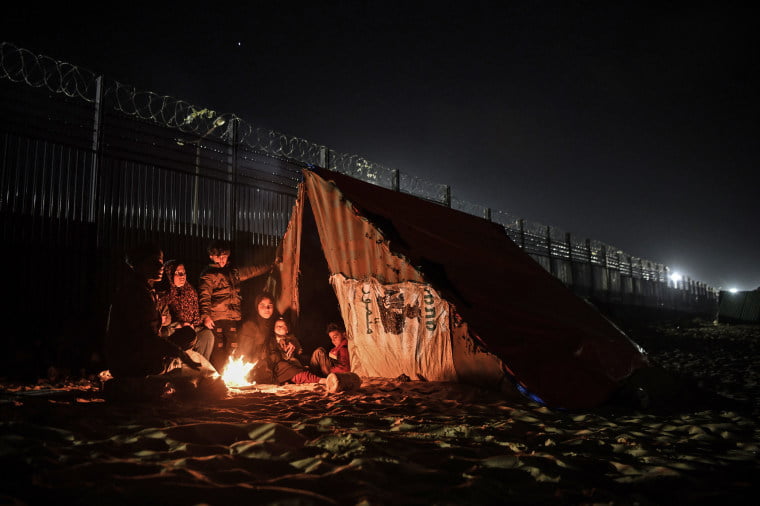
That risk has paid off. She and Al Borno have raised more than $46,000 and, with the help of relatives abroad, evacuated five of his family members, including his elderly mother and 3-year-old daughter, who has a serious health condition.
According to TFD News, GoFundMe saw a notable increase in campaigns once travel firms broadened the scope of people who may use their services.
Many of people who raise money remain in Rafah, while some go further into the conflict area in search of mobile service. Abdullah Alqatrawi, 24, has traveled as many as 28 miles to more dangerous areas in the Palestinian enclave, dodging airstrikes by hitching rides on trucks, to check his GoFundMe and post more videos.
“I make videos and post them on Instagram to raise money by sharing my suffering,” the man stated.
Alqatrawi, a recent college graduate, saw a notable increase in donations last month following the over 85,000 views on one of his Instagram videos. Through a campaign run by Belgians, he was able to earn almost $15,000 and last week, he was able to send his mother and four younger siblings to Egypt for safety. He and his brother and father stayed behind.
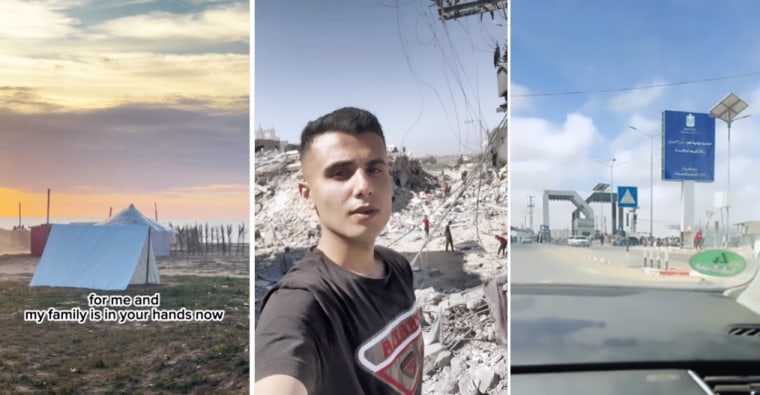
A number of foreign organizations emerged to gather and magnify the campaigns as the quantity of online fundraisers increased. According to a representative for the organization, Operation Olive Branch had its start in early February as a concept in the comments section of a TikTok. It swiftly gained around 100,000 followers on both Instagram and TikTok. Managed by volunteers, it accepts submissions from fundraisers to highlight. It then verifies the campaigns by following up with the families to make sure they are still in Gaza, checking their social media accounts for updates, and questioning them directly.
For a few weeks in March, the volunteers ceased showcasing new campaigns because they were overwhelmed with the volume of entries they were receiving. As of late April, Operation Olive Branch has 820 fundraisers registered.
In February, the group started supporting Al Borno’s candidacy. He soon got enough money to send his kids and wife on their way. Then came the challenge of getting the money into Egypt.
Obstacles
Reaching a GoFundMe goal is not the only obstacle Palestinians must overcome to leave Gaza. Once money is raised, it has to get to the coordinator, typically as cash payment in U.S. dollars. But American currency is hard to come by in Egypt.
Before relocating to Egypt, many families have resorted to taking out their US dollars in another nation. Two told TFD News they took a plane from the US to Cairo with a suitcase full of cash to cover the more than $35,000 needed to obtain licenses for eight family members. Kuspa sent money to one of his relatives in a neighboring nation, who then brought the money into Egypt, in order to enable Al Borno’s family to leave.
However, payment by itself no longer ensures a quick passage.
The Palestinian embassy in Cairo stated that since the start of the war, between 80,000 and 100,000 Palestinians have entered Egypt. However, a million or more people are crammed into large camps for refugees close to the Rafah crossing.
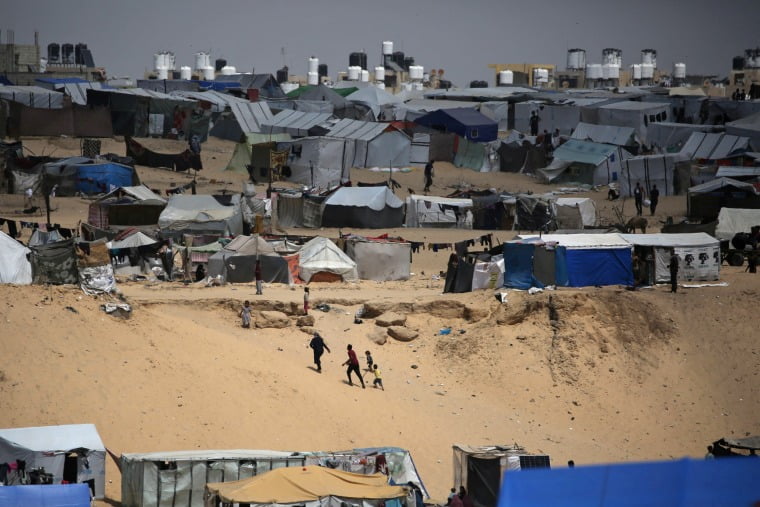
Due to high demand, there is already a backlog of people wanting to enter Egypt—even for those who pay more to have their paperwork processed more quickly. Many consumers have complained to TFD News in recent weeks that they have been waiting over a month after paying cash and submitting papers to Hala, the most well-known travel agency. Their loved ones’ names have yet to appear on Egypt’s daily list of those approved to cross.
Amr Magdi, a senior researcher at Human Rights Watch who specializes in Middle Eastern governance and human rights, described the situation as “really quite chaotic and exploitative.” The number permitted to cross the border stays a small portion of those wishing to escape the conflict, he said, even as more people raise the funds to do so. “Things have become more challenging, and bribes—money—have increased significantly.”
Allegations of bribery and “collection fees” at the crossing have been refuted by Egyptian officials, who claim the claims originate from “noncredible and unverified sources.” President of Egypt Abdel Fattah el-Sissi has consistently and vehemently rejected attempts to force Palestinians into Egypt, a view that is shared by much of the Arab world, and has instead called for a cease-fire.
Hala, the travel agency, did not respond to a request for comment on its crossing coordinations, pricing and backlog.
Al Borno checks his GoFundMe religiously and talks to Kuspa daily, whenever he has enough internet access — though that is getting more sporadic as Rafah gets more crowded. In addition to the backlog, power outages and imminent famine, Israeli leaders have issued new threats of a ground offensive in Rafah.
Al Borno bid his spouse and kids farewell at the Rafah entrance two months ago.
Al Borno remarked, “Everyone was crying, the kids didn’t want to leave me.” “I sit by myself and ask God to grant me the ability to see them soon.”
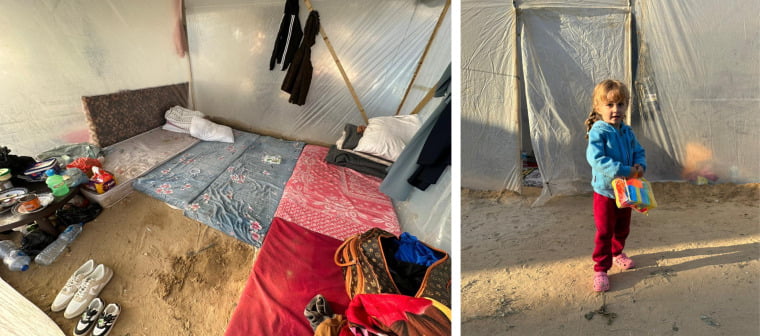
Conclusion
The role of crowdfunding as a lifeline for Palestinians in Rafah highlights the global solidarity and support in times of crisis. It signifies the power of collective efforts to alleviate the challenges faced by affected communities.
Connect with us for the Latest, Current, and Breaking News news updates and videos from thefoxdaily.com. The most recent news in the United States, around the world , in business, opinion, technology, politics, and sports, follow Thefoxdaily on X, Facebook, and Instagram .
